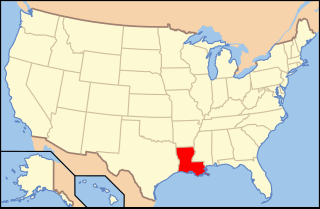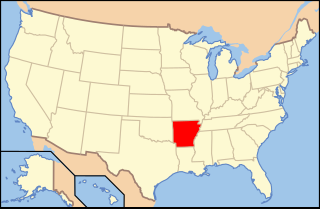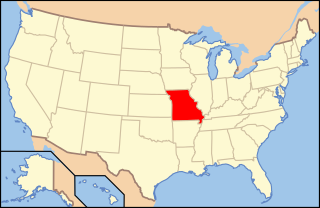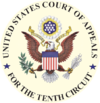
The availability of legally recognized same-sex marriage in the United States expanded from one state (Massachusetts) in 2004 to all fifty states in 2015 through various court rulings, state legislation, and direct popular votes. States each have separate marriage laws, which must adhere to rulings by the Supreme Court of the United States that recognize marriage as a fundamental right guaranteed by both the Due Process Clause and the Equal Protection Clause of the Fourteenth Amendment to the United States Constitution, as first established in the 1967 landmark civil rights case of Loving v. Virginia.
Many laws in the history of the United States have addressed marriage and the rights of married people. Common themes addressed by these laws include polygamy, interracial marriage, divorce, and same-sex marriage.
Eisenstadt v. Baird, 405 U.S. 438 (1972), was a landmark decision of the U.S. Supreme Court that established the right of unmarried people to possess contraception on the same basis as married couples.
Same-sex marriage has been legal in Florida since January 6, 2015, as a result of a ruling in Brenner v. Scott from the U.S. District Court for the Northern District of Florida. The court ruled the state's same-sex marriage ban unconstitutional on August 21, 2014. The order was stayed temporarily. State attempts at extending the stay failed, with the U.S. Supreme Court denying further extension on December 19, 2014. In addition, a state court ruling in Pareto v. Ruvin allowed same-sex couples to obtain marriage licenses in Miami-Dade County on the afternoon of January 5, 2015. In another state case challenging the state's denial of marriage rights to same-sex couples, a Monroe County court in Huntsman v. Heavilin stayed enforcement of its decision pending appeal and the stay expired on January 6, 2015. Florida was the 35th U.S. state to legalize same-sex marriage.

Lesbian, gay, bisexual, transgender, and queer (LGBTQ) people in the U.S. state of Louisiana may face some legal challenges not experienced by non-LGBTQ residents. Same-sex sexual activity is legal in Louisiana as a result of the U.S. Supreme Court decision in Lawrence v. Texas. Same-sex marriage has been recognized in the state since June 2015 as a result of the Supreme Court's decision in Obergefell v. Hodges.
Same-sex marriage has been legal in Louisiana since the U.S. Supreme Court's ruling in Obergefell v. Hodges on June 26, 2015. The court held that the denial of marriage rights to same-sex couples is unconstitutional, invalidating Louisiana's ban on same-sex marriage. The ruling clarified conflicting court rulings on whether state officials are obligated to license same-sex marriages. Governor Bobby Jindal confirmed on June 28 that Louisiana would comply with the ruling once the Fifth Circuit Court of Appeals reversed its decision in a Louisiana case, which the Fifth Circuit did on July 1. Jindal then said the state would not comply with the ruling until the U.S. District Court for the Eastern District of Louisiana reversed its judgment, which it did on July 2. All parishes now issue marriage licenses in accordance with federal law.
Same-sex marriage has been legal in Alabama since June 26, 2015, in accordance with the U.S. Supreme Court's ruling in Obergefell v. Hodges. Not all counties immediately complied with the ruling, copying behavior from the civil rights era when they had refused to perform interracial marriages. A year after the Supreme Court ruling, twelve counties would either issue licenses to no one or only to opposite-sex couples. By 2017, this number had dropped to only eight counties, with all eight refusing to issue licenses to anyone. In May 2019, the Alabama Legislature passed a bill replacing the option that counties issue marriage licenses and perform marriage ceremonies with the requirement of counties to record marriage certificates. Subsequently, all counties complied and announced on August 29, 2019 that they would record marriage certificates for interracial and same-sex couples. Previously, Alabama had banned the licensing of same-sex marriages and the recognition of such marriages from other jurisdictions by executive order in 1996, by statute in 1998, and by constitutional amendment in June 2006.

The American Foundation for Equal Rights (AFER) was a nonprofit organization active in the United States from 2009 through 2015. The organization was established to support the plaintiffs in Hollingsworth v. Perry, a federal lawsuit challenging California's Proposition 8 under the Due Process and Equal Protection Clauses of the Fourteenth Amendment to the United States Constitution. AFER retained former United States Solicitor General Theodore B. Olson and David Boies to lead the legal team representing the plaintiffs challenging Proposition 8.

Lesbian, gay, bisexual transgender, and queer (LGBTQ) rights in the U.S. state of Iowa have evolved significantly in the 21st century. Iowa began issuing marriage licenses to same-sex couples on April 27, 2009 following a ruling by the Iowa Supreme Court, making Iowa the fourth U.S. state to legalize same-sex marriage. Same-sex couples may also adopt, and state laws ban discrimination based on sexual orientation or gender identity in employment, housing and public accommodations.

Lesbian, gay, bisexual, transgender, and queer (LGBTQ) people in the U.S. state of Arkansas face legal challenges not experienced by non-LGBTQ residents. Same-sex sexual activity is legal in Arkansas. Same-sex marriage became briefly legal through a court ruling on May 9, 2014, subject to court stays and appeals. In June 2015, the U.S. Supreme Court ruled in Obergefell v. Hodges that laws banning same-sex marriage are unconstitutional, legalizing same-sex marriage in the United States nationwide including in Arkansas. Nonetheless, discrimination on the basis of sexual orientation and gender identity was not banned in Arkansas until the Supreme Court banned it nationwide in Bostock v. Clayton County in 2020.

Lesbian, gay, bisexual, transgender, and queer (LGBTQ) people in the U.S. state of Missouri face some legal challenges not experienced by other residents throughout the state, excluding St. Louis, Kansas City, and Columbia. Same-sex sexual activity is legal in Missouri, in accordance with 2003's Lawrence v. Texas decision. In 2006, Missouri codified the legality of same-sex sexual activity into its statutory law.

Lesbian, gay, bisexual, transgender, and queer (LGBTQ) people in the U.S. state of South Carolina may face some legal challenges not experienced by non-LGBTQ residents. Same-sex sexual activity is legal in South Carolina as a result of the U.S. Supreme Court decision in Lawrence v. Texas, although the state legislature has not repealed its sodomy laws. Same-sex couples and families headed by same-sex couples are eligible for all of the protections available to opposite-sex married couples. However, discrimination on the basis of sexual orientation and gender identity is not banned statewide.

Lesbian, gay, bisexual, transgender, and queer (LGBTQ) people in the U.S. state of Nebraska may face some legal challenges not experienced by non-LGBTQ residents. Same-sex sexual activity is legal in Nebraska, and same-sex marriage has been recognized since June 2015 as a result of Obergefell v. Hodges. The state prohibits discrimination on account of sexual orientation and gender identity in employment and housing following the U.S. Supreme Court's ruling in Bostock v. Clayton County and a subsequent decision of the Nebraska Equal Opportunity Commission. In addition, the state's largest city, Omaha, has enacted protections in public accommodations.

Lesbian, gay, bisexual, transgender, and queer (LGBTQ) people in the U.S. state of Oklahoma face legal challenges not experienced by non-LGBTQ residents. Same-sex sexual activity is legal in Oklahoma as a result of the U.S. Supreme Court decision in Lawrence v. Texas, although the state legislature has not repealed its sodomy laws. Both same-sex marriage and adoption by same-sex couples have been permitted since October 2014. State statutes do not prohibit discrimination based on sexual orientation or gender identity; however, the U.S. Supreme Court's ruling in Bostock v. Clayton County established that employment discrimination against LGBTQ people is illegal. This practice may still continue, as Oklahoma is an at-will employment state and it is still legal to fire an employee without requiring the employer to disclose any reason.
Until 2017, laws related to LGBTQ+ couples adopting children varied by state. Some states granted full adoption rights to same-sex couples, while others banned same-sex adoption or only allowed one partner in a same-sex relationship to adopt the biological child of the other.
Same-sex marriage has been legal in Nebraska since June 26, 2015, when the U.S. Supreme Court ruled in the case of Obergefell v. Hodges that the denial of marriage rights to same-sex couples violates the Fourteenth Amendment to the U.S. Constitution. Following the court ruling, Attorney General Doug Peterson announced that the state of Nebraska would comply and recognize same-sex marriages.
Tanco v. Haslam was the lead case in the dispute of same-sex marriage in Tennessee. A U.S. District Court granted a preliminary injunction requiring the state to recognize the marriages of the plaintiffs, three same-sex couples. The court found the equal protection analysis used in Bourke v. Beshear, a case dealing with a comparable Kentucky statute "especially persuasive." On April 25, 2014, that injunction was stayed by the Sixth Circuit Court of Appeals. Tanco was appealed to the Sixth Circuit, which reversed the district court and upheld Tennessee's refusal to recognize same-sex marriages from other jurisdictions on November 6.
In Brenner v. Scott and its companion case, Grimsley v. Scott, a U.S. district court found Florida's constitutional and statutory bans on same-sex marriage unconstitutional. On August 21, 2014, the court issued a preliminary injunction that prevented that state from enforcing its bans and then stayed its injunction until stays were lifted in the three same-sex marriage cases then petitioning for a writ of certiorari in the U.S. Supreme Court–Bostic, Bishop, and Kitchen–and for 91 days thereafter. When the district court's preliminary injunction took effect on January 6, 2015, enforcement of Florida's bans on same-sex marriage ended.
Obergefell v. Hodges, 576 U.S. 644 (2015), is a landmark decision of the Supreme Court of the United States which ruled that the fundamental right to marry is guaranteed to same-sex couples by both the Due Process Clause and the Equal Protection Clause of the Fourteenth Amendment of the Constitution. The 5–4 ruling requires all 50 states, the District of Columbia, and the Insular Areas to perform and recognize the marriages of same-sex couples on the same terms and conditions as the marriages of opposite-sex couples, with equal rights and responsibilities. Prior to Obergefell, same-sex marriage had already been established by statute, court ruling, or voter initiative in 36 states, the District of Columbia, and Guam.

Henderson v. Box was a case in which the United States Court of Appeals for the Seventh Circuit ruled that Indiana must list same-sex parents on their child's birth certificate. The case was brought before the court by eight lesbian couples from Indiana who conceived through artificial insemination.










